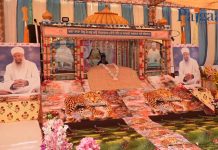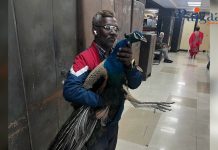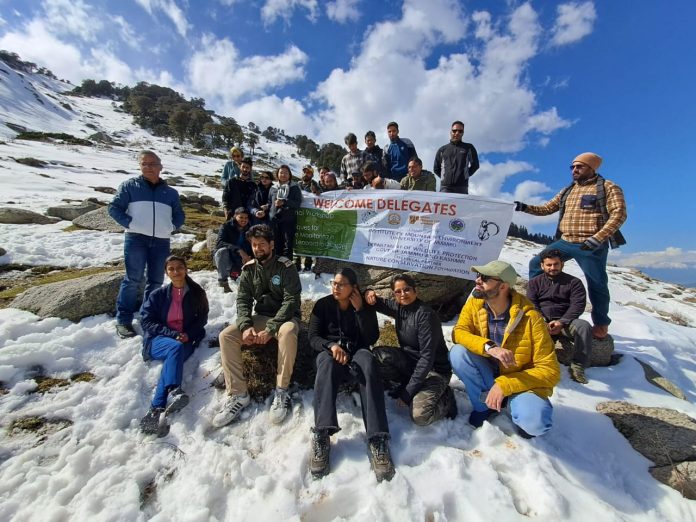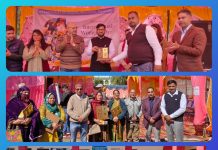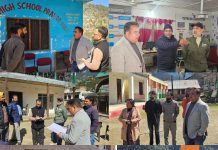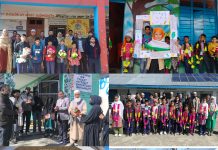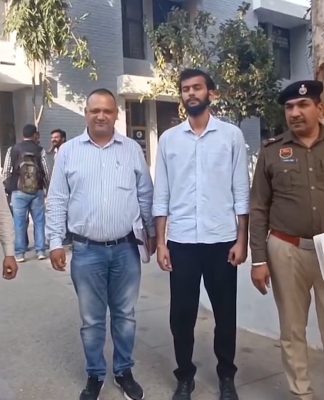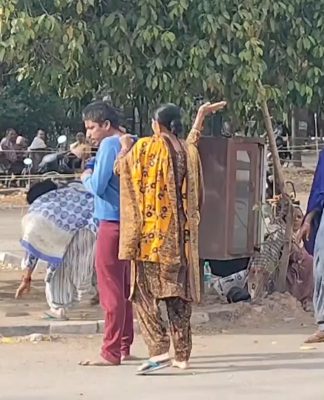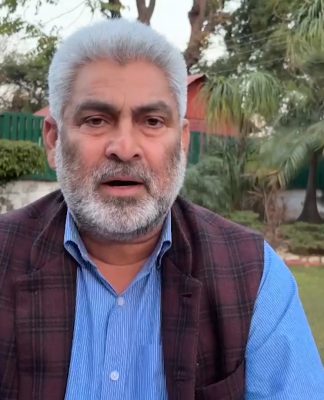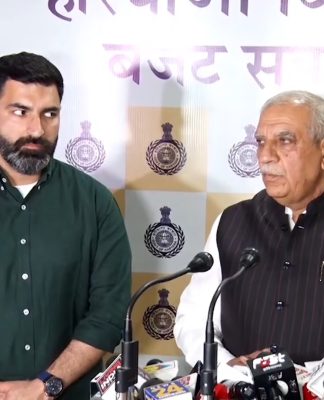Bhaderwah, October 20 : Four-day National Workshop on ‘Techniques for Wildlife Monitoring in Snow Leopard Landscapes’ successfully concluded here today. The event brought together an array of experts, researchers, conservationists, and government officials committed to advancing the preservation and understanding of the majestic snow leopards.
National Workshop on ‘Techniques for Wildlife Monitoring in Snow Leopard Landscapes’ which commenced at Bhaderwah Campus on October 17th , 2023, bringing together wildlife enthusiasts, conservationists, researchers, and managers from different parts of the nation. This workshop was organized by Institute of Mountain Environment in collaboration with Department of Wildlife Protection, Govt. of Jammu and Kashmir, was poised to be a focal event for the advancement of wildlife conservation in snow leopard habitats in the region. It represented a critical milestone in the ongoing effort to bolster conservation initiatives and wildlife monitoring strategies, particularly focusing on the elusive and vulnerable snow leopard and its prey base.
Eminent experts in the field of wildlife conservation delivered insightful presentations on innovative techniques and strategies for monitoring snow leopards and their landscapes. These presentations covered topics such as camera trapping, satellite tracking, and non-invasive monitoring methodologies.
Participants had the unique opportunity to witness practical demonstrations of the latest monitoring technologies, fostering a hands-on understanding of the tools and methods used for wildlife tracking and research. Engaging discussions facilitated the exchange of ideas and experiences, providing a platform for participants to address the challenges and opportunities in snow leopard conservation.
Speaking during the Valedictory function , Dr. Neeraj Sharma, Organizing Secretary of the workshop said “This workshop has served as an invaluable platform for pooling knowledge and resources toward the conservation of snow leopards. The exchange of expertise and the practical demonstrations will undoubtedly lead to enhanced conservation efforts.”
While giving brief account of the four days national worship Dr Neeraj said “The technical sessions of the four days workshop on ‘Techniques for Wildlife Monitoring in the Himalayas’ was followed by a field trip to the upper reaches of Bhaderwah. The workshop included 14 indoor sessions that mainly dealt with the introduction to sampling design and methodology to study snow leopards and other carnivores, snow leopard identification techniques, ungulate monitoring and ecology, and data analysis and inference on snow leopard abundance and density estimation.
He further informed that other sessions covered the ecology and behaviors of other mammals including the primates. “ A couple of sessions each dealt with eBird and bird population assessment using eBird data and on entomology mainly focussing on odonates and butterflies. The workshop participants were shown the museum specimens of butterflies maintained by Bhaderwah Campus,” he said adding further that a special session was held on season watch programme, a citizen science approach dealing with the phonological monitoring of trees. The technical sessions followed by a field trio to Gulidanda and Chattergalla wherein participants were exposed to camera trapping techniques, trail sampling and insect collection and duration. Dr Neeraj Sharma expressed his gratitude to all the participants, speakers, co-organizing partners, and sponsors especially to Rector Bhaderwah Campus Prof. Rahul Gupta for their unwavering support in making this workshop a resounding success.
Formal vote of thanks were presented by Arif Haleem Khateeb External Relations Officer Bhaderwah Campus.















